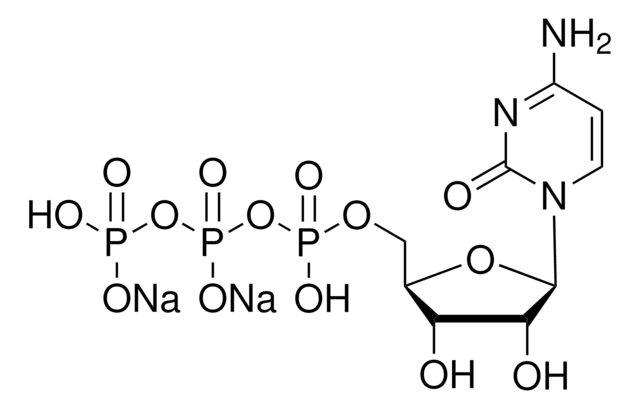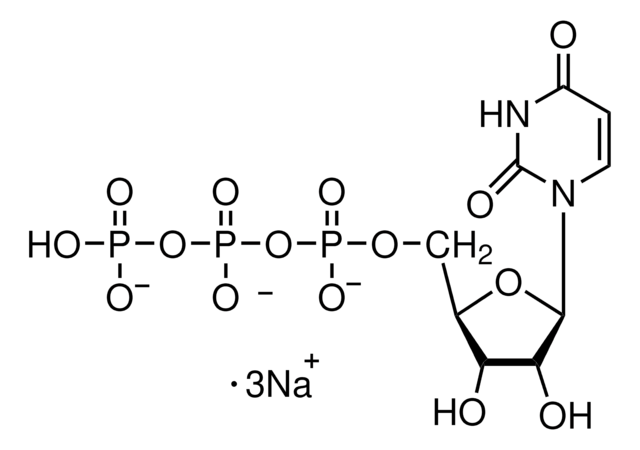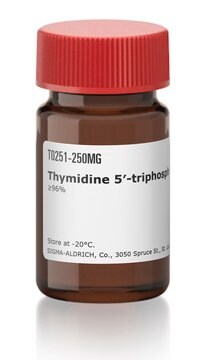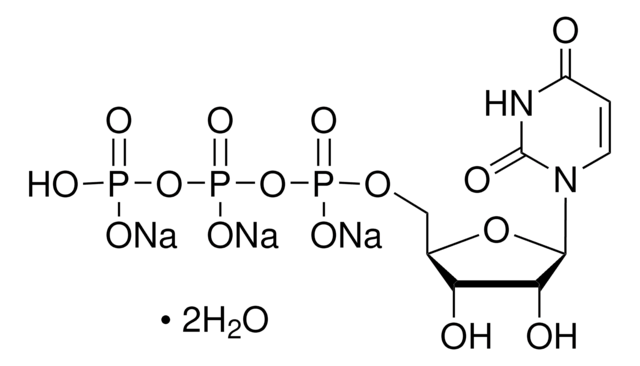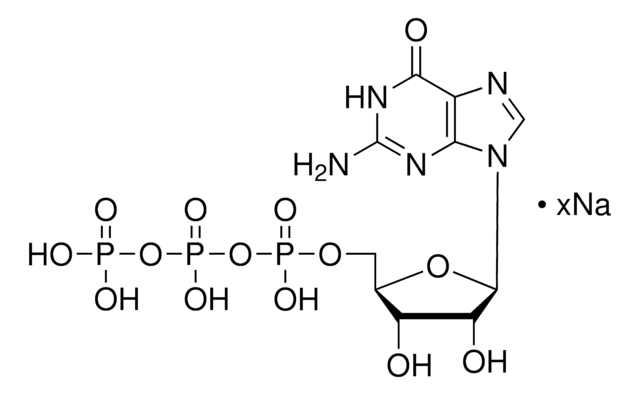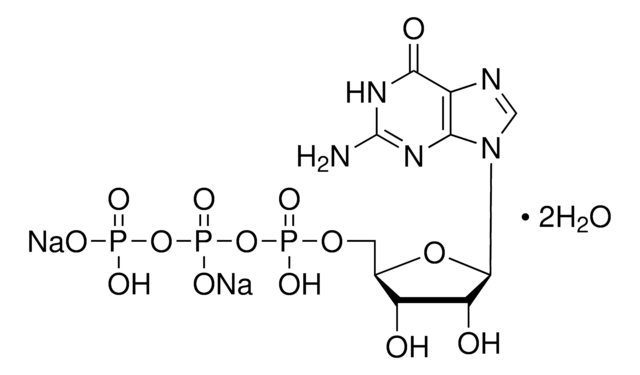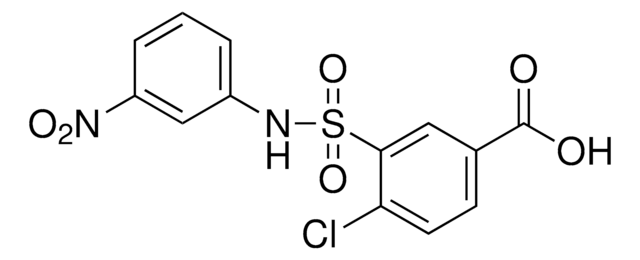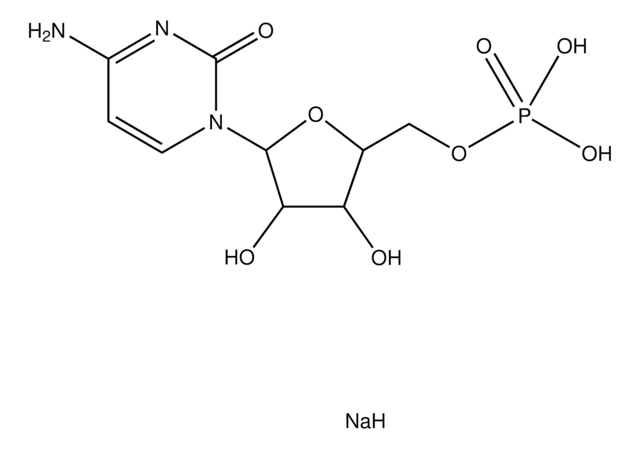30320
Cytidine 5′-triphosphate disodium salt hydrate
≥90.0% (HPLC)
Synonym(s):
5-CTP-Na2, CTP
About This Item
Recommended Products
Quality Level
Assay
≥90.0% (HPLC)
form
solid
impurities
≤12% water
solubility
H2O: 50 mg/mL, clear, colorless
shipped in
wet ice
storage temp.
−20°C
SMILES string
O.[Na+].[Na+].NC1=NC(=O)N(C=C1)[C@@H]2O[C@H](COP(O)(=O)OP([O-])(=O)OP(O)([O-])=O)[C@@H](O)[C@H]2O
InChI
1S/C9H16N3O14P3.2Na.H2O/c10-5-1-2-12(9(15)11-5)8-7(14)6(13)4(24-8)3-23-28(19,20)26-29(21,22)25-27(16,17)18;;;/h1-2,4,6-8,13-14H,3H2,(H,19,20)(H,21,22)(H2,10,11,15)(H2,16,17,18);;;1H2/q;2*+1;/p-2/t4-,6-,7-,8-;;;/m1.../s1
InChI key
IJMSOWKYYIROGP-LLWADOMFSA-L
Looking for similar products? Visit Product Comparison Guide
Related Categories
Application
- in the oligonucleotide synthesis for silver nanoclusters interaction studies
- as an anion source for fluorescence emission and titration curve-analysis of hypocrellin A-zinc(II) complex
- in fluorescence emission experiments of copper(II)–2,6-bis(2-benzimidazolyl)pyridine complex
Biochem/physiol Actions
Storage Class Code
11 - Combustible Solids
WGK
WGK 3
Flash Point(F)
235.4 °F - closed cup
Flash Point(C)
113 °C - closed cup
Personal Protective Equipment
Choose from one of the most recent versions:
Already Own This Product?
Find documentation for the products that you have recently purchased in the Document Library.
Customers Also Viewed
Our team of scientists has experience in all areas of research including Life Science, Material Science, Chemical Synthesis, Chromatography, Analytical and many others.
Contact Technical Service